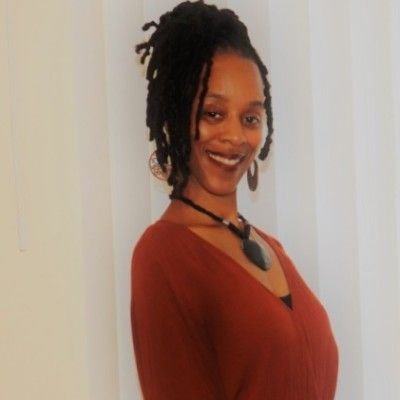Freshman year of college even before she got her feet wet, she was told by her aunt to pursue a doctorate degree. Even though her aunt is not with her anymore, Dr. Zakia Gates got her doctorate in education K through 12 studies and is now a member of Cabrini’s Community.
“I love the social justice piece of Cabrini University,” Gates said.
Gates joined the Cabrini Community in 2015 as an adjunct instructor teaching graduate-level courses at night. By 2018 the university offered her a full-time position and she happily accepted it.
Before working at Cabrini Gates was a middle school teacher primarily in the Philadelphia Charter school system. “I taught every content area, but my favorite content area was actually English and Social Studies, because English allows you to have this art and science to writing through your own lens, but also accepting feedback from that without telling you’re fully wrong.”
She was a director at a juvenile facility working with at-risk youth, where she worked primarily in their educational component and to make the facility a little more marketable. When looking back at those experiences she said, “I had great experiences teaching middle school and had great experiences at the juvenile facility. However, those experiences were 50-50. So when I say great, I still mean that there were a lot of challenges, more than the greatness of it. But that helped me to look at your brain from a different perspective.”
Gates decided to further her education and get a doctorate in education K-12 studies, she went to a primarily online university called Capella University. She decided to get her doctorate because of her aunt who has since passed on. She said “In my freshman year in college, my aunt actually said, you need to get your doctorate. And I’m like, I just started college, can I just kind of get my feet wet kind of things to know you and she said you need to do it.”

Teaching at Cabrini
Because of the pandemic Gates is primarily teaching in a full online modality. ”It’s great, it has its challenges at times. And just hoping that students are able to log in where they can log in,” said Gates. Currently, she’s teaching E.L.E 280 which is called “Teaching Social Studies and Social Justices” and two sections of EDU 406 “Family, School and Community,” a class primarily for juniors and seniors. Gates said, ”EDU 406 is about how all three entities can pretty much help teachers in their fields and how they are able to really understand themselves.”
Gates said the Black Live matter movement has been incorporated into her curriculum into any of her classes this semester and described how her social studies and social justice course are writing an ethical research paper and a social justice lesson plan.
“So one of the conversations that we had was how do we have these conversations in K through 12 contexts more likely, in middle school or high school because it can handle these conversations about these social issues,” Gates. said, “One of my students said teachers have to do their research before they even speak. And I said, exactly, this is the whole point of you doing this paper, and then transporting that onto a lesson plan.”
Race in America Panel
Wednesday, Sept.16, the university held the “Race in America “ panel. The panelists discussed their experiences as black women in America, not only facing racism but discussing racism internalized in communities of color, questioning what to do about that, the protests and demonstrations that’s been going on.
Gates told a personal story while on the panel. ”I had a story where a woman white woman actually tried to use her femininity to weaponize my career prospects to go to another school. So I was at one middle school for four years very quickly. And I wanted to advance my skills, again, to more than just teaching but more administrative work as well.” Gates’s final thoughts on the panel were “I hope that the series continues, like we need a part two, like just to make it a series for the long haul too, in my opinion, sustain Cabrini’s mission of social justice.”
Gates said she knew about the Black at Cabrini Instagram account from her daughter who follows the account so she’s been updated on what’s been going on. “The way I feel about that and position where I’m at right now at Cabrini is I feel as though students have the right to air out their grievances and their concerns. If they’re not able to air it out in that space, my assumption is a brave and safe space. If Cabrini really believes in the mission of social justice, let the students say what they have to say,” she said.
Gates offered advice for the minority students on campus for the upcoming election. “I would say to any minority student on that campus, it is important to vote. That’s something that has to be done. If you want to be initiated into the village. without burning it down. To fill this one, you have to vote. Sometimes a vote can make a change. And sometimes it takes a little bit of patience, but vote and have an agenda if it doesn’t work out in your favor and make sure that agenda is social, political, and educational.“


